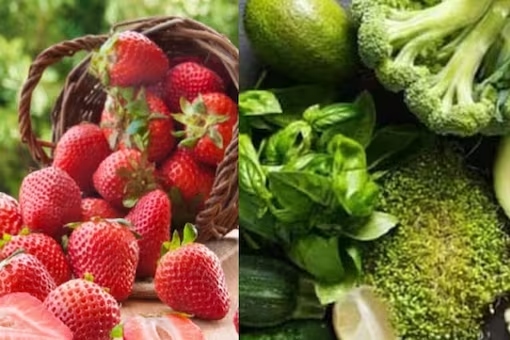What is the secret to staying young for a long time? This question cannot be definitively answered by anyone. However, Harvard Medical University has formulated a guideline for maintaining youthfulness and it revolves around adopting a healthy lifestyle. By adhering to a nutritious diet and engaging in physical activity, even in old age, your face can radiate warmth and glow.
To maintain a healthy lifestyle, the first step is to avoid consuming unhealthy food items, such as fast food and replace them with healthier alternatives. As per the Harvard study, the following items must be incorporated into your diet if you want to look youthful even in old age:
Berries
Berries are a potent source of anthocyanins, powerful antioxidants and anti-inflammatory compounds that help prevent collagen breakdown. Furthermore, anthocyanins may enhance the health of gut bacteria, potentially preventing age-related bone loss. Regular consumption of berries like blueberries, strawberries and Jamun (Indian blackberry), which also contain vitamins A and C, can help prevent skin and nerve damage, contributing to a youthful appearance.
Nuts
Nuts, including almonds, cashews, walnuts and pistachios, play a significant role in the anti-ageing process. Almonds, in particular, are a nutritional powerhouse, rich in protein, omega-3 fatty acids and various nutrients. Omega-3 fatty acids have been shown to reduce the signs of ageing on the skin and help regulate cholesterol levels in the body. Additionally, nuts contribute to the prevention of vascular diseases and protect nerves from damage.
Green leafy vegetables
Green leafy vegetables are an excellent source of essential nutrients, including vitamins C, K, fibre, folate, lutein and calcium. These nutrients contribute to collagen production, which is crucial for maintaining youthful skin elasticity and overall skin health. Including at least one green leafy vegetable in your daily diet can meet the body’s antioxidant needs.
No processed and packed food items
It is essential to avoid processed and packed food items, especially sugary items that contain emulsifiers, flavourings and additives. Consuming high amounts of processed foods has been linked to reduced telomere levels in the body. Telomeres are special DNA-protein structures at the end of chromosomes that protect cells from dying. Shorter telomeres can accelerate the ageing process.


